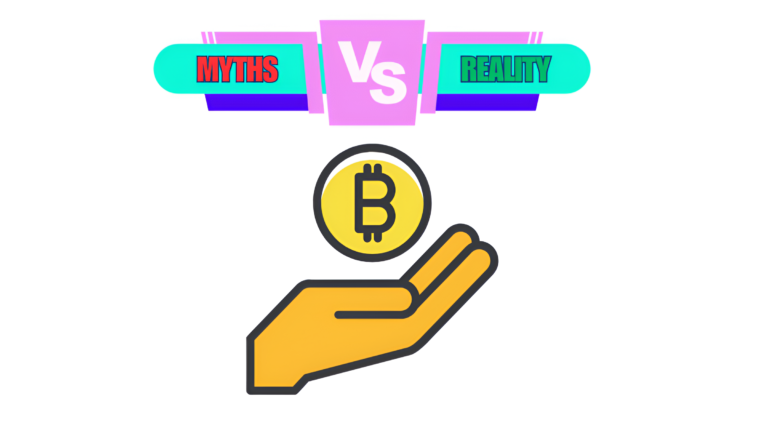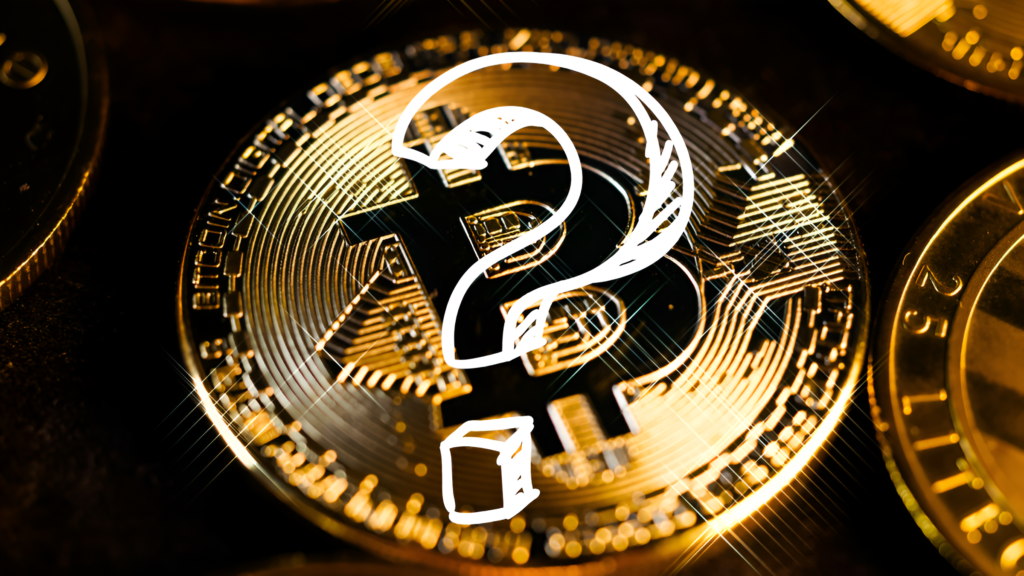Introduction
Bitcoin, the pioneer of cryptocurrencies, has caught the creative minds of investors, technologists, and skeptics alike. Since its beginning in 2009, it has changed from a dark computerized resource into a broadly perceived type of money and investment. In any case, many individuals actually inquire, “Is Bitcoin legit?” In this article, we will investigate Bitcoin’s authenticity, analyzing its innovation, reception, security, and associated risks.
What is Bitcoin and How Does It Work?

Bitcoin is a decentralized digital currency that works on blockchain technology. It permits shared exchanges without the requirement for mediators like banks or governments. Exchanges are confirmed by network hubs through cryptography and kept in a public record known as a blockchain.
The Technology Behind Bitcoin: Is It Reliable?

Is Bitcoin Legit? The foundation of Bitcoin’s authenticity is its blockchain technology. Blockchain gives a straightforward, permanent record that guarantees all exchanges are secure and tamper-proof. Its decentralized nature guarantees no single substance has some control over or manipulates the system.
Is Bitcoin a Scam or a Secure Investment?
Is Bitcoin Legit? The question, “Is Bitcoin a scam or a secure investment?” often arises due to the volatile nature of the cryptocurrency market and high-profile cases of fraud in the crypto space. To understand the answer, we must examine Bitcoin’s characteristics, its legitimate use cases, and the risks associated with it.

Why Some Label Bitcoin a Scam
Bitcoin has faced criticism and scepticism for several reasons:
- Lack of Central Authority: Since Bitcoin works without an overseeing body, certain individuals see it as unregulated and inclined to abuse.
- Association with Scams: Deceitful plans like Ponzi scams, phishing attacks, and fake investment platforms have discolored Bitcoin’s standing.
- Market Unpredictability: Bitcoin’s price can fluctuate dramatically, persuading doubters to think it needs characteristic worth.
While these variables raise questions, they stem to a great extent from misconception or misuse by malicious actors, not from the Bitcoin system itself.
Why Bitcoin is Considered Secure
Bitcoin’s underlying technology and growing global adoption make it a secure form of investment when used responsibly:
- Blockchain Technology: Exchanges are gotten by cryptography and verified by a decentralized network of nodes, making manipulation almost impossible.
- Transparency: Each Bitcoin exchange is recorded on the blockchain, a public ledger accessible to anyone.
- Adoption by Reputable Institutions: Companies like Tesla, Square, and Visa have embraced Bitcoin, reinforcing its legitimacy.
- Potential for High Returns: Despite volatility, Bitcoin has delivered significant returns to long-term investors since its inception.
Bitcoin Myths vs. Reality: Separating Fact from Fiction
Bitcoin, the world’s first cryptocurrency, is surrounded by myths and misconceptions. While some see it as revolutionary, others remain skeptical due to misinformation. In this section, we’ll tackle common myths about Bitcoin and uncover the realities to help you form an informed opinion.

Myth 1: Bitcoin is Used Primarily for Illegal Activities
Reality: While Bitcoin has been related to unlawful exchanges previously, concentrates on show that illegal action represents under 1% of all digital currency exchanges. The straightforwardness of blockchain innovation makes it simpler to follow and screen dubious exchanges, frequently dissuading criminal use. Legitimate uses of Bitcoin, such as remittances, e-commerce, and investment, now dominate its ecosystem.
Myth 2: Bitcoin Has No Real Value
Reality: Bitcoin derives value from its scarcity (just 21 million will ever exist), utility, and developing reception. Like gold, it fills in as a store of significant worth and a fence against inflation. Furthermore, its decentralized nature and capacity to work with borderless exchanges add to its characteristic worth.
Myth 3: Bitcoin is a Bubble Ready to Burst
Reality: Bitcoin’s price volatility often leads to comparisons with economic bubbles. However, its value has consistently rebounded from crashes, reflecting long-term growth and increasing adoption. Unlike speculative bubbles, Bitcoin’s growth is backed by real-world use cases and institutional interest.
Myth 4: Bitcoin is Not Secure
Reality: Bitcoin’s blockchain is among the most solid frameworks on the planet. The decentralized organization and cryptographic calculations make it almost impossible to change or hack. Security risks arise primarily from human error, such as weak passwords or phishing attacks, rather than the technology itself.
Myth 5: Bitcoin Will Be Banned Everywhere
Reality: While certain nations have forced boycotts or limitations on Bitcoin, others are embracing it. Countries like El Salvador have embraced it as lawful delicate, while nations like the U.S. and Japan control it as a ware or installment framework. Worldwide patterns highlight guidelines instead of through and through denial.
Myth 6: Bitcoin is Too Complicated for the Average Person
Reality: While the fundamental innovation is intricate, utilizing Bitcoin has become progressively easy to use. Current applications and trades make buying, selling, and storing Bitcoin as simple as conventional web-based banking. Educational resources also help new users understand the basics.
Is Bitcoin Legit?
Bitcoin, the first decentralized digital currency, has sparked debates since its creation in 2009. While it has gained immense popularity and global adoption, many people still question its legitimacy. So, is Bitcoin legit? Let’s break down the factors that determine Bitcoin’s legitimacy, including its technology, use cases, and risks.
Why Bitcoin is Considered Legit
1. Backed by Robust Technology
Bitcoin operates on blockchain technology, a decentralized ledger that ensures transparency and security. Transactions are verified by a network of nodes and recorded immutably, making the system resistant to tampering or fraud.
- Transparency: Every Bitcoin transaction is publicly accessible.
- Decentralization: No central authority controls Bitcoin, reducing risks of manipulation.
2. Widespread Adoption
Bitcoin is accepted by thousands of merchants and used by millions worldwide. Institutions such as Tesla and Square have invested in Bitcoin, while countries like El Salvador have adopted it as legal tender.
- Legitimate Use Cases: Payments, remittances, and investment are common Bitcoin applications.
- Institutional Support: Adoption by major corporations and financial entities validates its credibility.
3. Regulation and Legal Recognition
Many governments recognize Bitcoin as a legitimate financial asset. While regulations vary, the legal frameworks in several countries aim to promote responsible use while preventing illicit activities.
- Taxable Asset: Bitcoin is treated as property or currency in many jurisdictions.
- Government Oversight: Efforts to regulate exchanges and ensure compliance have bolstered Bitcoin’s legitimacy.
Challenges to Bitcoin’s Legitimacy
1. Association with Scams and Fraud
Bitcoin has been linked to scams like Ponzi schemes, phishing attacks, and unregulated exchanges. However, these issues stem from bad actors, not Bitcoin itself.
- Mitigation: Use reputable exchanges and wallets to avoid risks.
2. Volatility and Speculation
Bitcoin’s price is highly volatile, leading some to perceive it as a speculative asset rather than a legitimate currency. While this poses risks, it also reflects a growing and maturing market.
3. Environmental Concerns
Bitcoin mining consumes significant energy, raising questions about its environmental impact. Efforts are underway to shift toward greener mining practices.
Conclusion: Is Bitcoin Legit?
Is Bitcoin Legit? The short answer is yes, Bitcoin is a legitimate digital currency and financial asset. Its foundation on blockchain technology, growing adoption, and increasing regulatory oversight affirm its credibility. However, like any investment or financial tool, it requires careful consideration and understanding of associated risks.
Is Bitcoin Legit? Bitcoin’s legitimacy continues to grow as it evolves, attracting more users, institutions, and governments worldwide. Whether for payments, investments, or technological innovation, Bitcoin has firmly established itself as a transformative force in the global economy.
FAQs
How Does Bitcoin Get Its Value?
- Bitcoin derives its value from supply and demand, its scarcity (only 21 million will ever exist), utility as a decentralized currency, and growing adoption by individuals, businesses, and institutions.
Is Bitcoin a Safe Investment?
- Bitcoin can be a safe investment if approached with caution. Its volatility offers potential for high returns but also comes with significant risks. Always do thorough research and invest only what you can afford to lose.
How Do I Know If Bitcoin Is Right for Me?
Bitcoin may be suitable for you if:
- You’re interested in a decentralized currency.
- You understand and are comfortable with market volatility.
- You’re willing to learn about securing your digital assets.
If you’re unsure, consider consulting a financial advisor.


Hi! This post couldn’t be written any better! Reading this post reminds me
of my old room mate! He always kept talking about this.
I will forward this post to him. Fairly certain he will have a good read.
Thank you for sharing!
Does your site have a contact page? I’m having a tough time locating it but, I’d like to send you an email.
I’ve got some recommendations for your blog you might be interested in hearing.
Either way, great blog and I look forward to seeing it improve
over time.
https://paisewaise.com/contact-us/
Thanks for sharing your thoughts on was crypto a good investment.
Regards
It’s rejuvenating to see a alternative point of view on this subject.
I love what you guys are usually up too. This kind of clever work and coverage!
Keep up the wonderful works guys I’ve incorporated you guys to my personal blogroll.